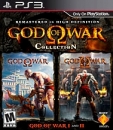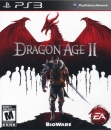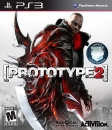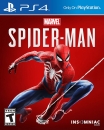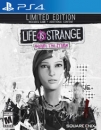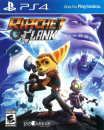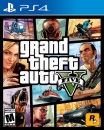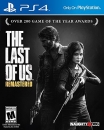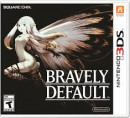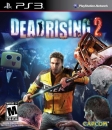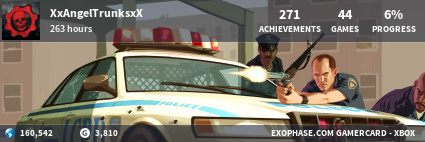Shadow1980 said:
Comebacks are hard to come by in the console industry (and to clarify, by "comeback" I mean a single system with weak initial sales grows to become hugely successful). When a particular platform struggles with weak sales early in its life, it almost never rebounds. Three out of Sega's four main systems never really amounted to anything, having weak early sales and weak lifetime sales, and two of those systems were discontinued mid-generation. The GameCube and Xbox both failed to breach the 25 million mark globally. Most recently, the Wii U had a rough first year, and while sales did eventually increase it never got anywhere close to even the GameCube.
But occasionally a system does have a comeback. Sometimes it's mainly in a single region. The PS3 struggled in the U.S. at first, with sales comparable to the GameCube's 2002 sales (a fact not lost on some people), but after a price cut in late 2007 it rebounded, monthly sales doubling through the first three quarters of 2008 according to NPD, and sales improving even more after the PS3 Slim was released in 2009. However, the system always performed quite well in Europe. Conversely, the 360 always performed well in the U.S., but Europe was another story. According to VGC's numbers the 360 did mediocre numbers early in its life, selling less than 2.3 million units by the end of 2006, and by the end of 2007 it was up to about 4.3 million; by comparison, the PS3 sold 7.76M units in its first 21 months. However, after several rounds of price cuts in quick succession, the 360 managed to rebound, with yearly sales in 2008 being more than 2006 & 2007 sales combined, and it narrowed the gap between itself and the PS3 by a considerable amount (but never managing to take the lead either in yearly or lifetime sales).
Going back even further, we have the Sega Genesis. While Sega was never big in Japan, and the console market in Europe was very small in the 8-bit & 16-bit eras, the Genesis was a sales smash in North America, managing to fight the SNES on even terms (and even being the overall sales leader in 1993 and 1994). But it didn't start off doing well. Because of Nintendo's de facto monopoly on the console market, the Genesis could barely establish a presence in the NA market. It sold fewer than one million units in the U.S. from 1989 to 1990. But once Nintendo was forced the change its policies the Genesis was able to rebound considerably, and in 1991 it started to rebound and in 1992 it took off like a rocket. Here's how it performed relative to the SNES (note that the number from '89 to '92 may not be 100% accurate):

Very impressive. But there's one system that tops all that. A system that started off poorly in all major markets but later went on to become the most popular console on the planet. The first console to be a mainstream success in Europe. The first console to sell over 100 million units globally. Sony's debut console, the original PlayStation. While PlayStation is now a strong global brand, it was initially largely ignored by gamers. The PS1 was relatively expensive at launch, it was a new brand that had yet to establish itself, and it didn't have that big killer app that made it a must-have system. In every region it had a lousy performance from launch and on through 1996 and much of 1997. Here's how it performed in the U.S. from launch through to the end of 1996 relative to what the GameCube & Wii U, two other consoles known for middling sales, sold through to the end of their first full years:

So, all the way through its first April, it was selling worse overall than the Wii U. The PS1 did get a price cut in May 1996, which dropped it from $300 to $200. This caused sales to improve, but it was selling worse than the GameCube (though to be fair the GC did get a price cut of its own its first May, which dropped it from $200 to $150). The N64 debuted near the very end of September of 1996, and in the 3 months and a week it was available in 1996 it still managed to sell nearly as much as the PS1 did that whole year. Overall, by the end of 1996 the PS1 had sold only 2.6 million units.
Now here's the above comparison chart extended through to the end of the second full years of those systems:

The PS1 got another price cut in March of '97, which reduced it from $200 to $150, which improved sales a fair amount. Overall, throughout the May-August '97 period the PS1 was up nearly 70% YoY, and through the first 8 months of the year it was up a whopping 96% YoY. But given how low it was in 1996, that improvement wasn't exactly enough to keep it from lighting the charts on fire. In fact, through the first 8 months of 1997, the N64 had outsold the PS1 by a comfortable margin, pulling in about 24.3% more units (in fact, at the time the N64 was the fastest-selling system ever in the U.S., having sold nearly 6.5 million units in its first 15 months).
But we see something happen in September of 1997 that caused the PS1's sales to spike. In fact, sales improved to such a phenomenal degree that in the fourth-month span from September to December of 1997 the PS1 sold nearly as many units as it did in the previous two years, effective doubling its lifetime sales. But what happened in September of '97? It wasn't a price cut or a big sale, but rather a single game, a game that's getting a remake this generation: Final Fantasy VII. If you are old enough to remember this now 18-year-old game when it first came out, you probably remember this game getting hyped to the moon and back. It was probably the biggest third-party game ever at the time, and it was the PS1's first true killer app. It was the shot in the arm Sony needed. It opened the floodgates, and suddenly gamers flocked to PlayStation, saw what the system had to offer, and loved it (in fact, though I was still a hardcore Nintendo fan in the 90s, FFVII was enough to convince me to buy a PS1; I didn't buy many other games besides that, but I did play FFVII quite a bit). For the rest of the generation, the PS1 dominated the console market. Here's how it performed on a monthly basis through to the end of 2001:

Compared to where it was at the beginning, that's one hell of an improvement. From September of '97 on through to Q1 of 2000 it was unstoppable. Nothing else before it had ever sold at that volume. To put the PS1's sales in a bigger context, here's a chart combining annual sales of fourth- and fifth-gen consoles in the U.S.:

Unfortunately, they aren't any NES sales data available for the U.S., but even shipment data suggests that the PS1 outsold the NES in the U.S. by a comfortable margin in terms of lifetime sales and at its peak sold at least as well as the NES did at its peak.
Of course, that's just the U.S., but Japan and Europe tell pretty much the same story. While finding data for pre-2000 sales in Japan and pre 7th-gen sales in Europe is essentially impossible, there is shipment data. Here's PS1 shipment data for Japan, combined with SNES & N64 shipment data for comparison (I would have included NES shipments, but Nintendo's fiscal years were shifted in the late 80s from Sept. starts to April stars; but for reference, the NES had peak shipments nearly identical to the SNES's, and it sold 19.35M lifetime in Japan):

As we see, the PS1 started off rather slowly. Maybe not as slowly as in the U.S., but it wasn't close to being a best-seller. However, things picked up in the FY running 4/96 to 3/97. Of the 4 million units shipped that FY, 2.3M were shipped in the Dec. '96-March '97 period (for some reason, they don't have shipments for the end of the 1996 calendar year). This means that cumulative lifetime shipments grew by nearly 55% in that four-month span alone. Incidentally, FFVII was released in Japan on Jan. 31, 1997, and while we can't be 100% certain that said game was the culprit for the sales boost as we don't have any sort of weekly hardware sales tracking from Famitsu from the time (at least nothing publicly available), it certainly seems to be the case that, like in the U.S., FFVII was largely responsible for pushing the PS1 to where it was a success. Overall, between Dec. 1 of 1996 and Aug. 20 of 1997, the PS1 jumped from 4.2M shipments to 8.5M. Basically, this means that sales picked up enough to where Sony shipped more in that nine-month period than they did in the previous two years. At its peak, it was bigger than the NES and SNES were and was enough to keep the N64 at a distant second. The PS1 ended up passing the NES to become the new all-time best-selling console in Japan, selling 21.6M units to the NES's 19.35M. Not too shabby for a system that only shipped 2.5 million units in its first 16 months.
Now here's the chart for Europe showing PS1 shipments compared to other systems from the 90s (note that Nintendo also includes other smaller markets in Asia and Oceania along with Europe):

Seeing a pattern? The PS1 had a really bad start in Europe, and it was looking like it was going to fare about as well as every other console before it, which is to say not very well at all. In its first 18 months (Sept. 29, 1995 to March 31, 1997) it had shipped only 3 million units, which is pretty mediocre. But once again we see things start to pick in in 1997. However, there are some big differences between the European market and the U.S. & Japan markets. Unlike in the other regions, FFVII does not appear to have been the catalyst to cause PS1 sales to begin improving. While the PS1 had shipped only 3 million units through March 1997, it shipped a further 3.1 million in just the next six months. While shipments are rarely congruent with sales, for Sony to have effectively doubled the PS1's total lifetime shipments in that short amount of time that means sales had to have spiked. But interestingly, there were not any truly big "killer apps" released in Q2 or Q3 of 1997 in Europe. FFVII was not release in Europe until November of that year.
So what happened? Perhaps the culprit was the demise of the "home computer." As mentioned earlier, the console market in the 8-bit & 16-bit eras was not very big at all in Europe. But home computers like the ZX Spectrum, Atari ST, and perhaps most notably the Commodore Amiga were very popular in Europe as gaming platforms in the 80s and early 90s. However, that market began to rapidly wane in the mid 90s, right at the time when the console market began transitioning to the fifth generation with the debut of the PS1 and Saturn in 1995. With no real place for gamers to get their fix anymore, they likely shifted to the PS1. While finding a good price history for Europe is hard (probably because the Eurozone wasn't established yet), it appears that the PS1 got price cuts in the region at about the same time and by the same amount proportionally as it did in the U.S. So, by March 31, 1997, the PS1 was likely about £150 in the UK, with comparable prices elsewhere in Europe. Furthermore, the PS1 already had the lion's share of all third-party support by that time. Finally, by 1997 the Saturn was already a commercial failure pretty much everywhere (it did semi-decently in Japan, though), and the N64 wasn't released until March 1, 1997 in Europe. Basically, the PS1 was affordable, had a great library, and was effectively running unopposed in Europe, thus allowing it to quickly fill the vacuum left by the demise of home computers. Sales would continue to improve, and Europe was quickly established as PlayStation Country.
In conclusion, I think we can say that without a doubt the PS1 was the biggest comeback for a console in gaming history. Unlike other comeback stories, the PS1's comeback was global in nature. In every region it had mediocre to poor sales early in its life, even after price cuts. A year after its respective launches in each of the three main regions and it looked like it wasn't going to amount to much. Sony's foray into the console market seemed doomed from the start, the PlayStation brand relegated to playing second-fiddle to Nintendo if it survived into the next generation. However, it was saved by a combination of factors, namely the debut of FFVII in America and Japan and the end of the home computer market in Europe. It was further fueled by having much stronger third-party support in general than the competition, plus by March 1997 it had a relatively low price point. Had Nintendo made the N64 a CD-based system, it's probable that they might not have lost the bulk of third-party support to Sony, and the N64 would have sold what the PS1 did and vice versa. But now Sony is a strong global brand, with over 370 million home consoles sold to date across four generations, far greater than what even Nintendo has been able to do in six generations.
"Big things have small beginnings," indeed.
|







































